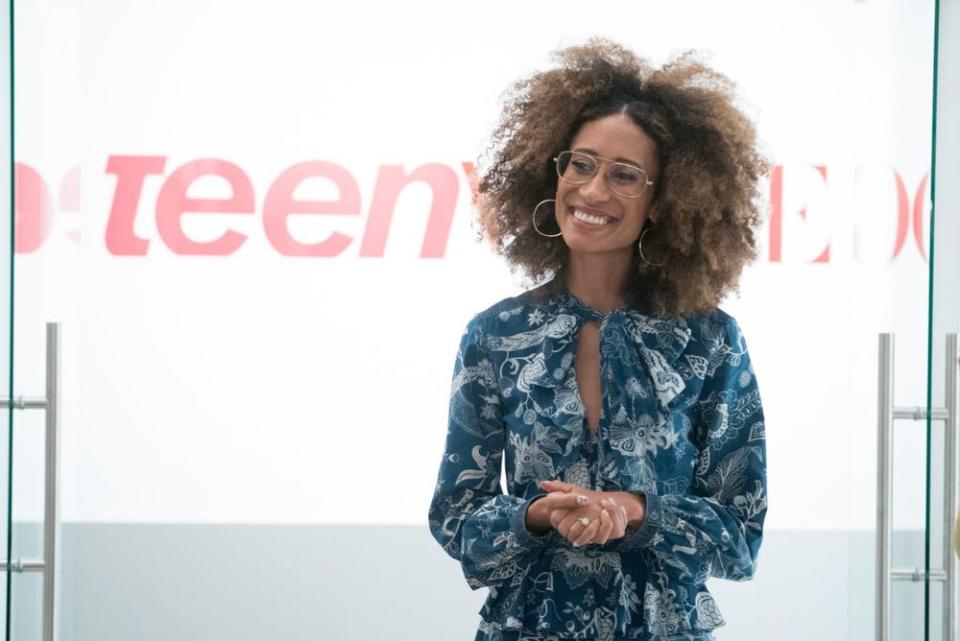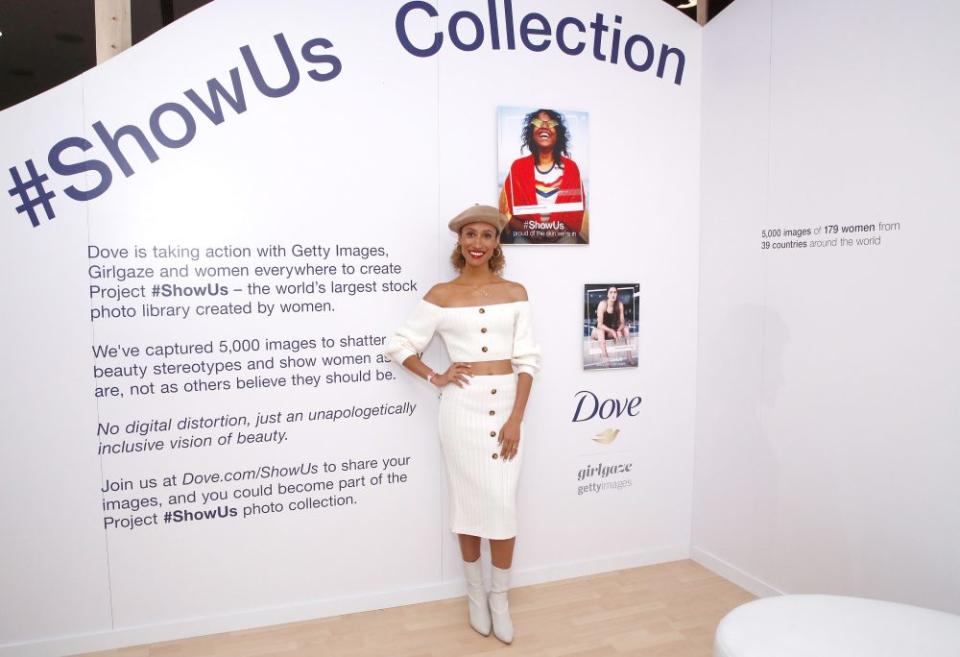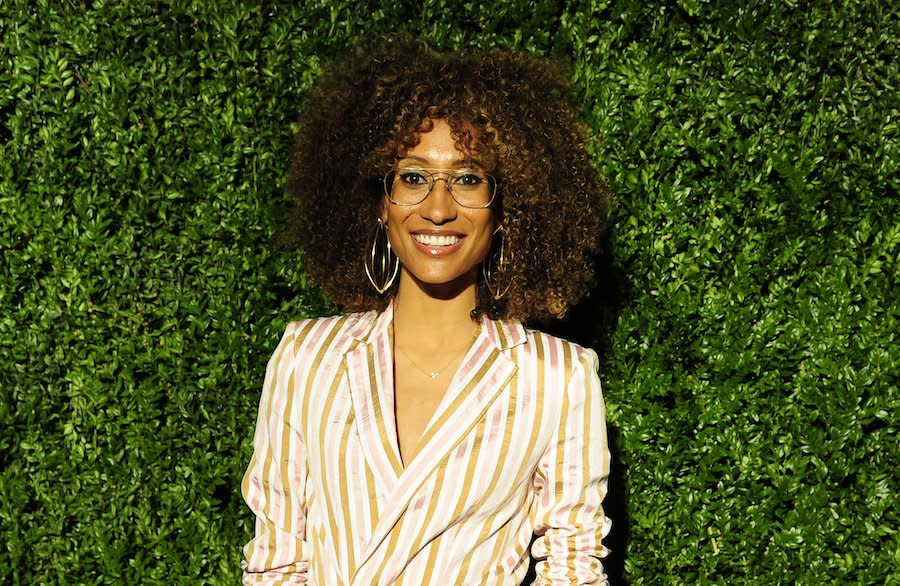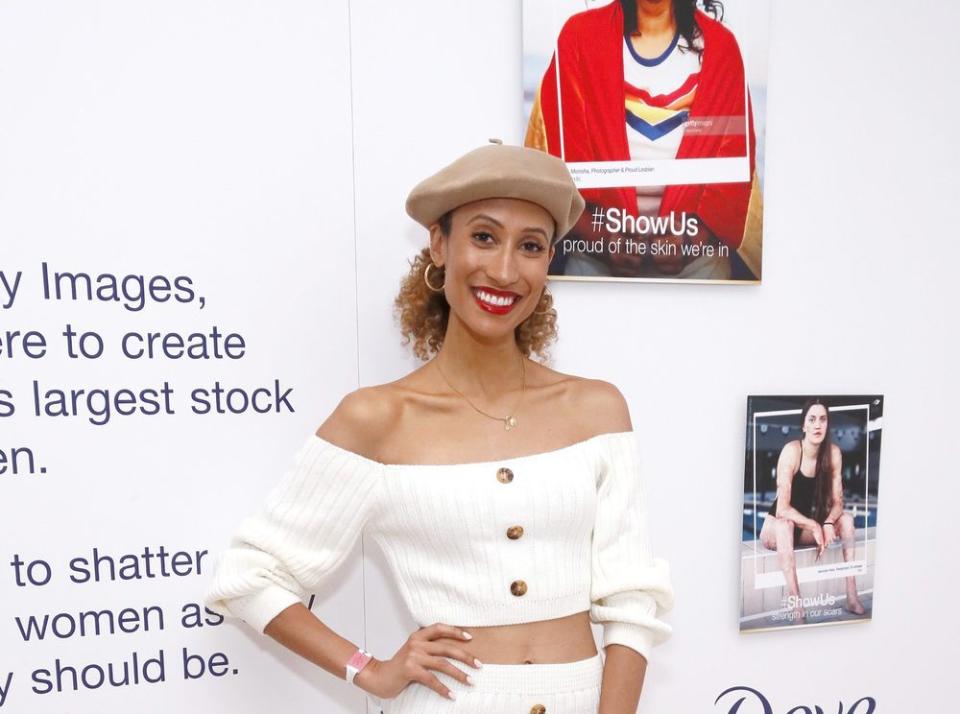Project Runway 's Elaine Welteroth explains why diversity in the beauty industry has to start behind the scenes
After years of keeping young girls up-to-date on makeup and fashion, Teen Vogue became a premiere site for social justice and political discourse in a transformation that took less than two years. It was a natural evolution that didn’t seem contrived or rooted in capitalism, and people started paying attention. This transition stemmed from the work of former editor-in-chief, Elaine Welteroth, the ultimate media It girl.
Welteroth took over the publication in 2016, after serving as Teen Vogue‘s Beauty Director for four years, and made headlines for being the second Black editor-in-chief in the history of Condé Nast. She stayed at the magazine until 2018, and after making Teen Vogue a trusted hub for marginalized voices, she continued to inspire her hundreds of thousands of Instagram followers with her empowering quotes and political stances. And, oh yeah, she also became the first Black judge on Project Runway. Now, you can buy her new book, More Than Enough: Claiming Space For Who You Are (No Matter What They Say), after its June 11th release.
As always, Welteroth is using her platform to create space for other women and nonbinary folks with Dove via Project #ShowUs. The initiative, which is in collaboration with Getty Images and GirlGaze, aims to create a massive digital library that highlights representation and demonstrates that beauty is whatever you believe it is. In anticipation of her first book’s release, Welteroth spoke to HelloGiggles about the work she’s done for representation and why diversity in the beauty industry is so important.
HelloGiggles (HG): Before you took over, Teen Vogue was known for fashion, beauty, and celebrity content. You kept the same blueprint, but you shifted the lens and broadened the scope, creating space for stories about the intersections of beauty, race, and politics. What inspired you to completely alter the direction of Teen Vogue?
Elaine Welteroth (EW): So coming into the job, I recognized that I had a unique perspective. I came from a background that people had never represented in those seats. People who look like me, who come from where I’m actually from, have never had an opportunity to have a voice at that decision-making table. And so I recognized that I had a unique opportunity and a unique responsibility to really give voice to those marginalized communities, and it became a priority for me. It also became a competitive advantage for me as an editor.
As I found my voice at Teen Vogue as an editor, I recognized the white space. I recognized that there were large [numbers] of young girls and young people that we just weren’t speaking to holistically. We weren’t acknowledging how multi-faceted that they really were, that they cared about fashion and beauty as well as politics and social justice movements. For me, and for the rest of the team at the time, it became really important for us to become this destination that celebrated all aspects of their identities…and I think the only way to do that authentically is when you identify with the audience.
So I think owning and embracing everything that [made] me authentically me, and bringing that into the role as a young Black leader, [helped] me do my most transformative work.

HG: There are a plethora of problems plaguing non-white people in the world of beauty, from incorrect foundation colors to poor lighting on models’ Black skin to not having the right hair products on set. What do you personally believe to be the most pervasive issue surrounding Black women and women of color in beauty?
EW: I think the most pervasive issue facing women of color in the beauty industry is a lack of representation behind the scenes. And, therefore, a lack of understanding about the subcultural differences. There is a real lack of education. I started my career at Ebony. I learned how to talk about beauty through a Black female lens. Then I moved on to Glamour and Teen Vogue, and I learned the vocabulary of speaking to a mass audience—which is code for a majority white audience. And so I had to learn about accenting beauty that did not necessarily impact me in my day-to-day life. I had to be an expert on beauty for everyone.
I had to learn about dry shampoo and how to volumize fine, straight hair, and how to color straight hair. I had to learn about sun-less tanner—things that I would never encounter in my own life as an individual, but that was my job as a journalist, as an expert in beauty, and what I realized…is that these white beauty editors were not held to the same standard. They were not expected to be experts on Black beauty or on beauty for Asian women, or Latinx [people]. There was this sort of unspoken expectation that we were all writing about, learning about, and talking about Eurocentric beauty. That’s the standard. And anything else is a deviation. And I think that it is of a fundamentally flawed, biased mindset… And I see that changing with the conversations that are happening on social media around representation, around inclusion and diversity. But I think the changes, the structural changes, are taking longer to take hold.

HG: So you are the first Black judge to be featured on Project Runway in its 15-year run. Other than the obvious impact of your representation, what other changes are you bringing to the show?
EW: In term of the changes that we are bringing to this season, I think, what I’m really proud of is it is the most diverse cast that America has ever seen from Project Runway. Project Runway is such a beloved show; it reaches millions of households globally. But this particular cast is truly inclusive in terms of racial diversity: in terms of gender identity, in terms of age…It really reflects what the world looks like today.
And I really am challenging the designers to not design to the vacuum. You no longer, as a designer, can approach your work in a vacuum. You have to take into account the conversations that are happening in the world culturally and make sure that you’re being conscious of them, and not appropriating cultures that you don’t understand, and also using your platform as an opportunity to celebrate your culture and your identity. We’re seeing that on the show in really powerful ways. There’s an episode coming out on May 15th where this is really prioritized. Each of the new judges had an opportunity to kind of craft our own episode, and my episode is around using fashion to elevate social causes.



